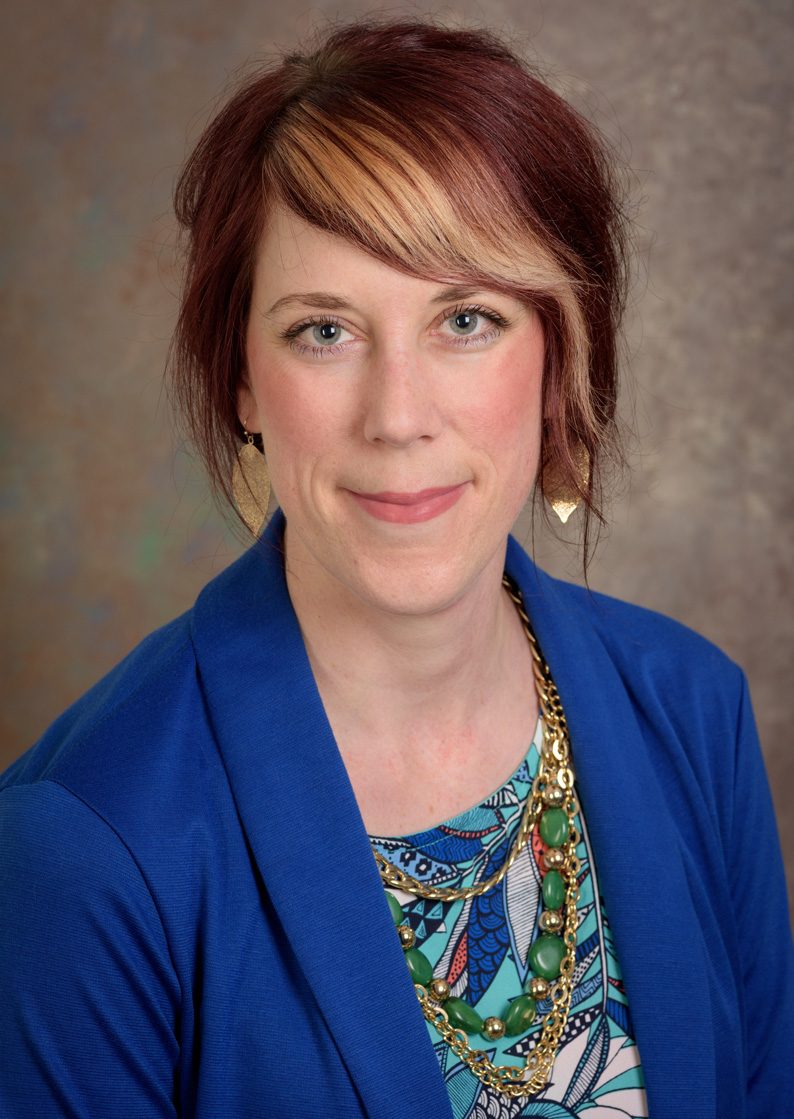


Writing for social justice
Photo by Evan Krape May 18, 2018
First-year composition students produce book of essays
First-year students in a required English composition class at the University of Delaware have gone far beyond the basic description of the introductory course, writing essays arguing for social justice causes on campus, organizing a symposium on the topic and, most recently, producing a book.
The spiral-bound book, Writing for Social Justice, contains essays written by 22 students in the Honors English 110 class, taught by postdoctoral researcher Emily R. Johnston last semester. At the end of the semester, students planned a symposium in Memorial Hall, during which they presented the findings of their original research on a variety of topics affecting the campus climate at UD.

The purpose of the December symposium, organizers said, was “to raise awareness in the UD community about issues impacting students on campus, to provide a wide range of viewpoints on social justice issues impacting our campus and to offer examples of how the community can help.”
Some of the topics covered in the student essays were proposals to increase racial and socio-economic diversity at UD, to reduce the stigma around mental illness, to involve more women in STEM fields and to increase cross-cultural interactions between U.S. and international students.
“In English 110, each instructor has a lot of leeway in how they teach students to think and write about complex ideas,” Johnston said. “We focus quite a bit on audience awareness, and for this class, our audience was University administrators … how to do research and then write a proposal for change.”
Students were asked to identify a social justice issue on campus, and—by conducting interviews and surveys and doing scholarly research—to write a proposal for improvement.
In the book they produced, many students said they were at first taken aback by the assignment, especially because they were so new to campus, but soon found it easy to identify issues affecting themselves or others at UD.
For Amy Ciminnisi, a freshman majoring in anthropology, the key was developing the skill of listening carefully to what others say and taking time to understand the context of their views and opinions.
“We had to go into the environment where our chosen issues took place and take notes, often talking to those around us to get the information we needed,” she said of the class assignment. “It was a perfect project for the class because it transformed our rhetorical listening and social justice conversation topics into research on campus.”
Johnston said the students took the idea of organizing a symposium and ran with it, presenting their research and essays in posters and other formats and writing additional short essays reflecting on the experience.
“I thought of the symposium as a great experience in itself for the students,” Johnston said. “But when the Honors Program asked us to consider making a permanent record, we published the book.”
Writing for Social Justice: Proceedings from the English 110 Honors Campus Climate Symposium, as well as the symposium, were supported by grants from the UD Honors Program and the Department of English.
English 110, “Seminar in Composition,” is a required course for all UD students and is designed to introduce them to the process of academic writing centered on the composition of analytical, research-based essays.
“Writing is a way of communicating, but it’s also a way of being—a general orientation to the world that expresses the power of language to shape our daily realities,” Johnston said in her introductory remarks at the symposium and in the book.
Next, Johnston plans to present copies of the book to UD administrators and others on campus. And later this month, she and Ciminnisi will give a presentation about the project at the regional meeting of the Conference on College Composition and Communication, the world’s largest organization for researching and teaching composition.
Ciminnisi thinks that having students go outside the classroom to identify and research issues relevant to them could be a useful way to learn in other courses as well.
“We’re here at the University—administrators, faculty and students alike—to influence change in whatever way we can, and this project is an amazing way to start,” she said.
Contact Us
Have a UDaily story idea?
Contact us at ocm@udel.edu
Members of the press
Contact us at 302-831-NEWS or visit the Media Relations website

